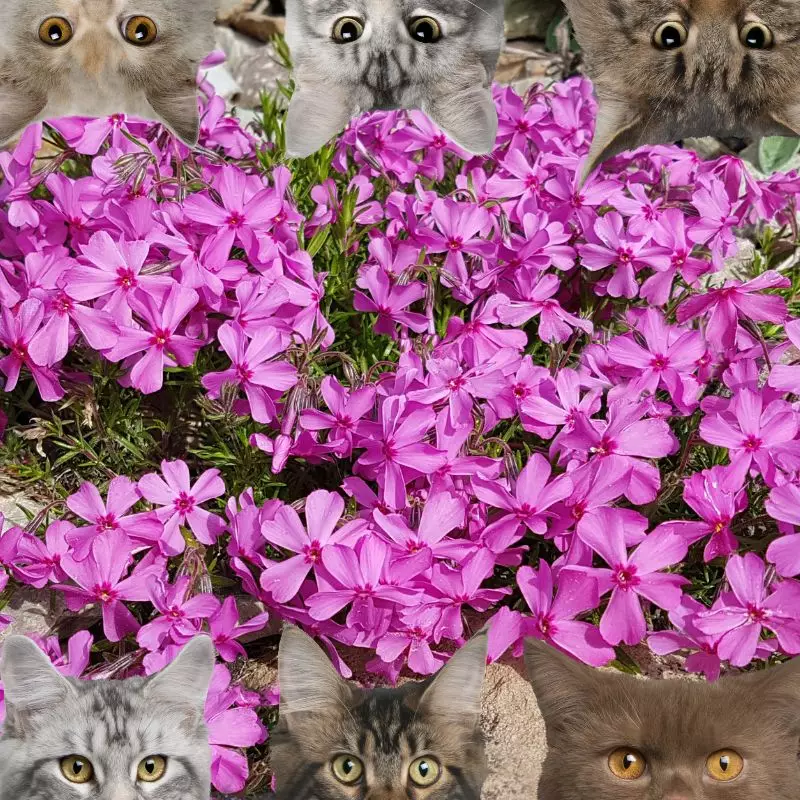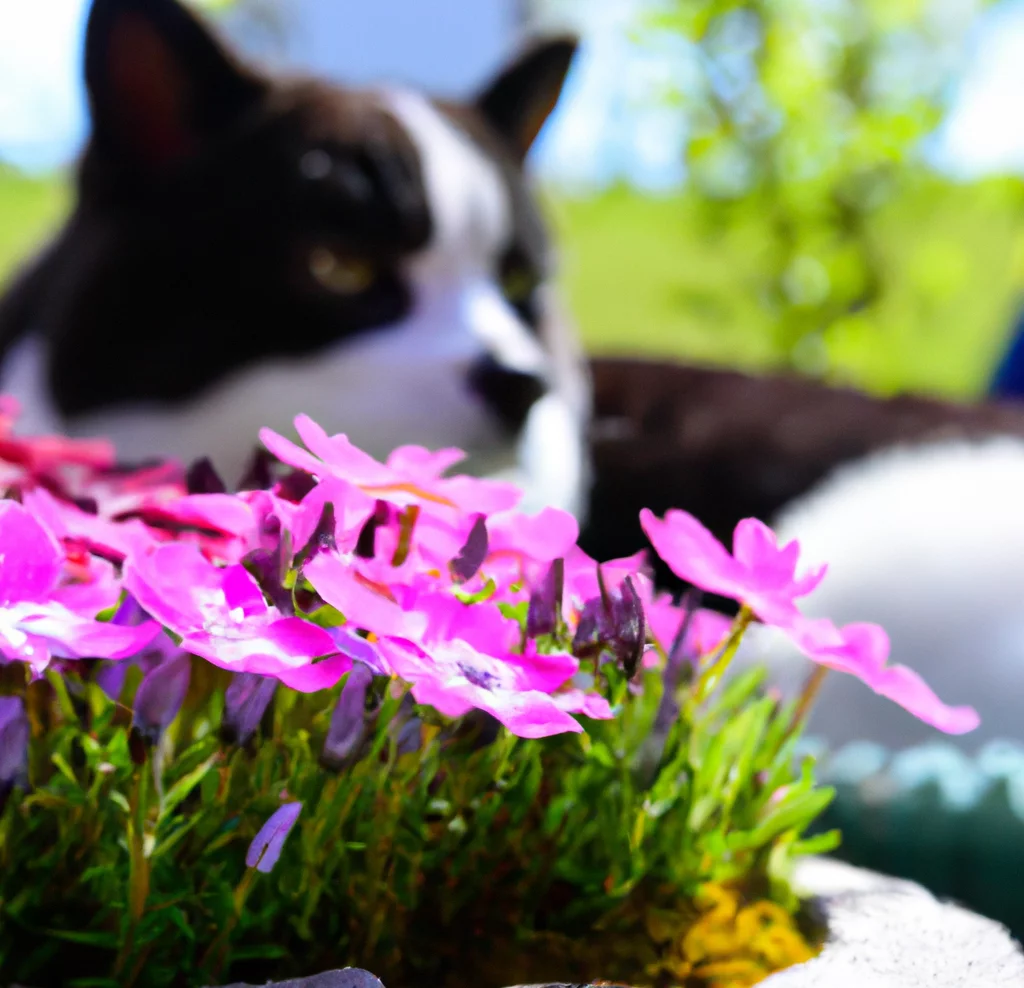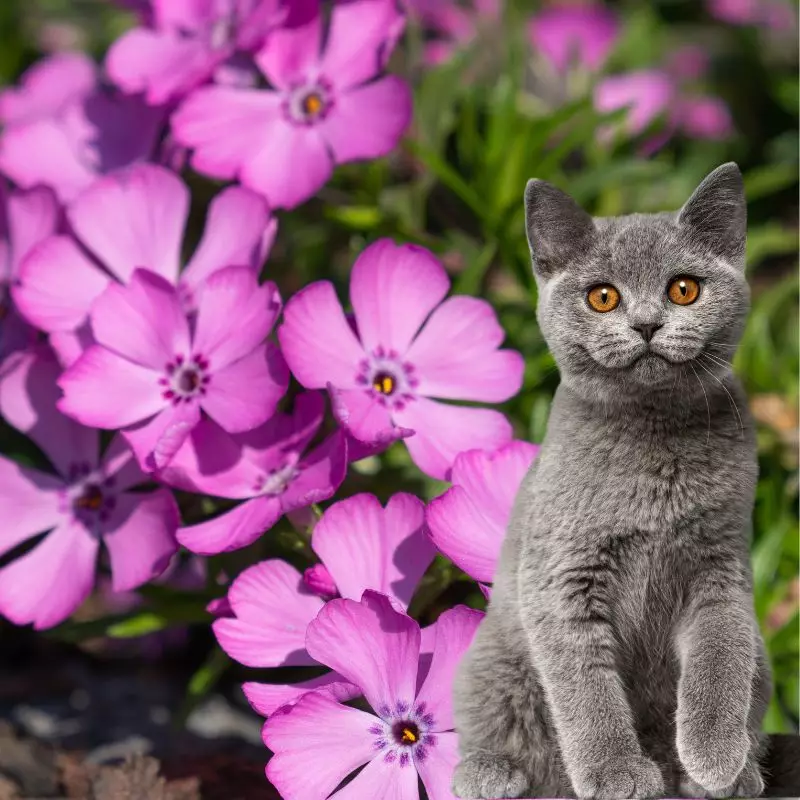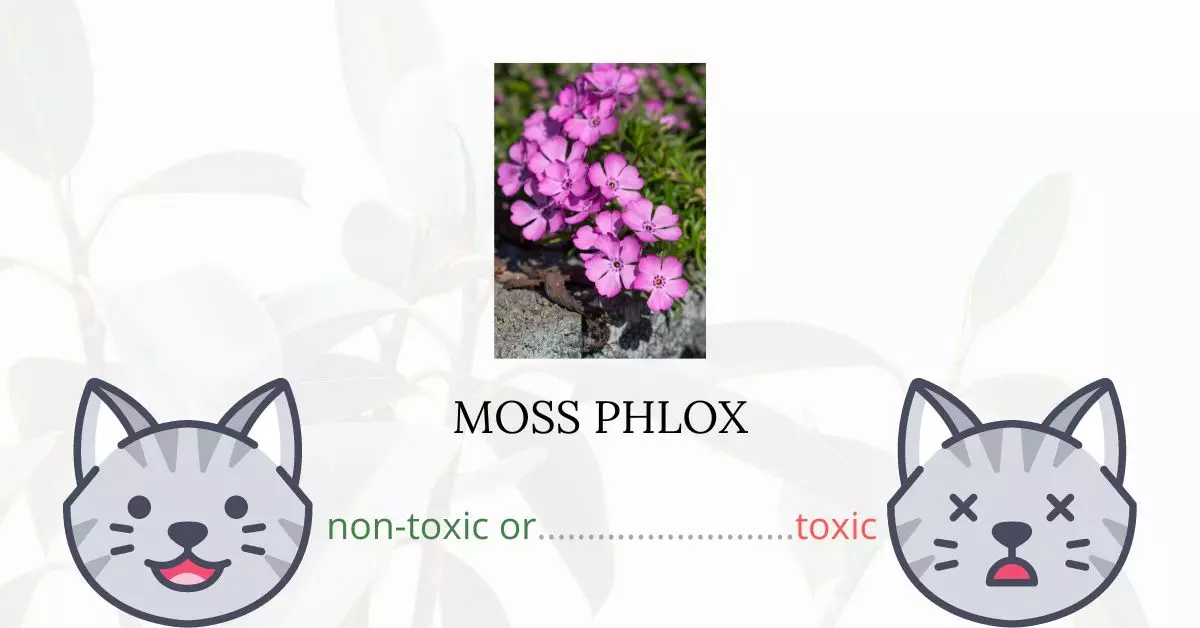No, Moss Phlox is not toxic for cats. If your feline companion happens to play with or even nibble on the leaves or blooms of the Moss Phlox, there shouldn’t be any adverse effects. This evergreen perennial is recognized as non-toxic, and its plant components, including seeds, pose no harm to cats. However, it’s important to note that every cat is unique, and while it’s unlikely, there could be individual reactions.
This article was crafted in collaboration with a team of experienced DVMs (doctors of veterinary medicine). Their invaluable insights ensure that we provide accurate and up-to-date information on the potential risks associated with various plants, specifically Moss Phlox, and their effects on cats. Furthermore, in our commitment to authenticity and accuracy, we have thoroughly researched high-authority websites such as ASPCA and PetMD for every plant we discuss.
Can Cats Eat Moss Phlox?

Cats can devour moss phlox blossoms and foliage if you frequently let them play in the garden. They won’t be hurt because the plant is non-toxic. On the other hand, plants that have been sprayed with pesticides or herbicides may be harmful to cats. If not treated, the moss phlox is generally safe to eat. You should keep an eye on how much they are chewing off because even safe plants can upset the stomach or even create a gastrointestinal obstruction if enough is swallowed or if they swallow a huge frond.
What is a Moss Phlox?

Moss phlox, sometimes called creeping phlox, moss pink, or mountain phlox, is a perennial that is a must for many rock gardens all over the world. It belongs to the family Polemoniaceae, which has about 65 species. This flower stands out since it blooms in the spring and is semi-evergreen.
Low-maintenance creeping phlox is a plant that grows naturally in rocky areas of North America. It can flourish in any soil and carpet your yard with gorgeous flowers. Phlox, which translates from Greek as “flame,” is a name for flowers with vivid blossoms.
Native Americans have a special connection to this plant, which was historically used to treat a range of medical conditions.
Keeping Cats Away From Moss Phlox

Create a designated area of the yard for cats to use as a litterbox to keep them out of your garden. Catnip should be planted nearby for their enjoyment. Although everything will be confined, you will still need to clean up. This is a simple initial step, but it is not a foolproof way to keep cats out of your garden beds.
Cats have 80 million smell receptors compared to people’s five million, thus essential oils’ potent aromas can deter cats from your garden. Orange, Citronella, and Rosemary are some suggested oils.
Plants to Avoid For Your Cats
If you are a cat owner and unsure if the plants growing in your yard are harmful to your cats, check out this list of toxic plants for cats. You can also check our list of non-toxic plants for cats.





